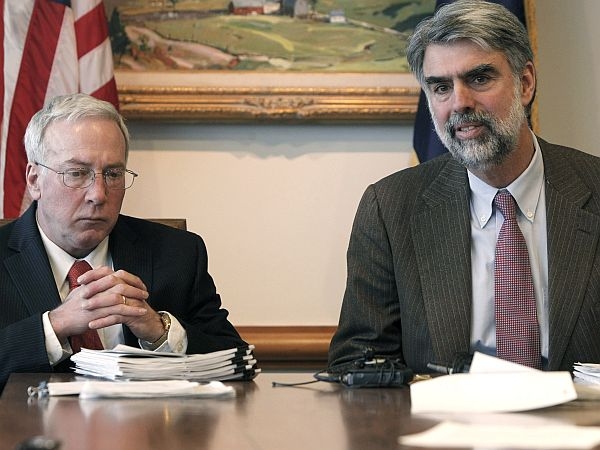
The Shumlin Administration says the job of crafting next year’s state budget is made easier now that Washington has tackled some of the fiscal issues facing the country.
Meanwhile, the administration and lawmakers are working to address gaps in the current year budget. And officials say they’re troubled by growing caseloads in social service programs.
January in Montpelier is budget time. The Administration prepares next year’s budget, and also proposes changes to true-up the current budget to match anticipated revenues with additional outlays.
Gov. Peter Shumlin expressed relief that Congress forestalled automatic tax hikes and spending cuts. He says the resolution of the so-called fiscal cliff gives more certainty to the states.
"It’s pretty clear that the dire consequences that would have been inflicted on the American economy had they not resolved this question would have been a real challenge for us," he said. "I see us emerging from a recession. I see Vermont actually and finally in position to see some real economic growth. I think this is the one thing that that could have set us back into recession."
The budget discussion in the Statehouse starts first with adjustments to the current year spending plan.
Halfway through fiscal year 2013, the state faces a combination of less revenue and higher expenses. But Administration Secretary Jeb Spaulding says in the end the books will balance.
"The big picture, though, is that we’re going to finish FY 13 – no surprise – as we always do with a balanced budget with our reserve funds full," he said.
Finance Commissioner Jim Reardon says the balanced budget will stem in part from savings in the Medicaid program. But Reardon’s concerned about some long-term trends, including growing expenditures in general assistance programs. He highlighted a welfare-to-work effort called Reach-Up that needs $4.6 million more in the current fiscal year.
"Obviously our estimate for caseload was incorrect based on our current experience," he said. "But that is a little concerning to me in that we continue to see upward pressure in our Reach-Up program."
Other cost pressures came from an overhaul of the state’s mental health system following Tropical Storm Irene.